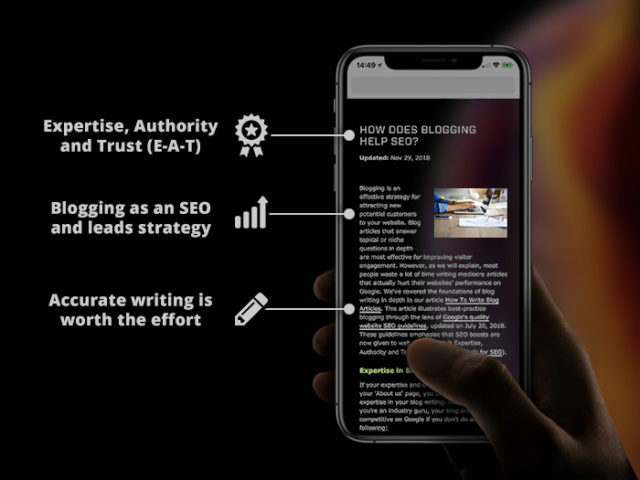Updated: Apr 28, 2025
Author: Tony Waldegrave
E-E-A-T stands for Experience, Expertise, Authoritativeness, and Trustworthiness. It’s a framework Google uses to assess the quality of both your content and your website overall. Strong E-E-A-T signals help boost your site’s credibility and visibility in search results.
What we know about E-E-A-T factors comes largely from the set of guidelines that Google provides to it’s network of search quality evaluators. These raters are engaged by Google to personally review websites and to provide feedback relative to their rankings and level of E-A-T for the purpose of assisting Google to improve search results. Google has made these guidelines publicly available since 2013 and they are regularly updated and can be read here.

E-A-T in SEO, relates to those elements, on and off your website that are analysed by Google’s algorithm to measure the level of experience-expertise, authority and trust associated with your website and it’s pages.
Improving your website’s E-E-A-T can:
Recent updates to Google’s core ranking algorithm place even more emphasis on quality content and transparency, especially for businesses in sensitive sectors.
It is important to understand that there is a broad category of websites (defined within Google’s Search Quality Rating Guideline’s) known as Your Money or Your Life websites, and sites that fall into this category are required to meet an even higher level of quality and E-A-T standards than non YMYL websites.
Google defines YMYL websites, as those sites that could potentially impact the future happiness, health, financial stability, or safety of users. This includes websites providing;
The following is a list of elements too focus on to improve your E-A-T. If your website falls into the YMYL category, then it will be even more important to pay close attention to these.
Some red flags to watch out for:
Overall, your focus should be on providing great quality content for your website visitors and in an open and trustworthy manner. Information about your business and it’s key people should be visible and transparent.
If you would like an assessment of your website, please see our SEO services or contact us for more information.
Our reputation goes hand-in-hand with our team’s dedication to best practice. As a registered Premier Google Partner, our team refreshes our certifications every 12 months — A tradition we started over a decade ago. To stay ahead, we are always looking forward to upcoming certifications for online advertising, website development and search engine optimisation.
Blog • Terms • Privacy • 110 Mount Eden Rd, Mount Eden, Auckland 1024 • Mon–Fri 8:30am–5pm
© 2007-2025 Adhesion